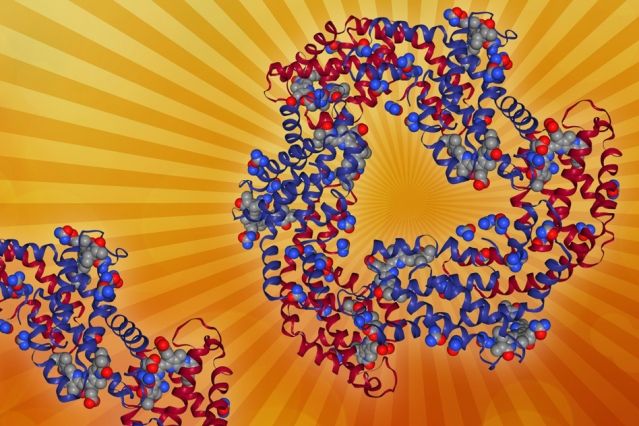Plants and other photosynthetic organisms use a wide variety of pigments to absorb different wavelengths of light. MIT researchers have now developed a theoretical model to predict the spectrum of light absorbed by aggregates of these pigments, based on their structure.
The new model could help guide scientists in designing new types of solar cells made of organic materials that efficiently capture light and funnel the light-induced excitation, according to the researchers.
“Understanding the sensitive interplay between the self-assembled pigment superstructure and its electronic, optical, and transport properties is highly desirable for the synthesis of new materials and the design and operation of organic-based devices,” says Aurelia Chenu, an MIT postdoc and the lead author of the study, which appeared in Physical Review Letters on Jan. 3.
